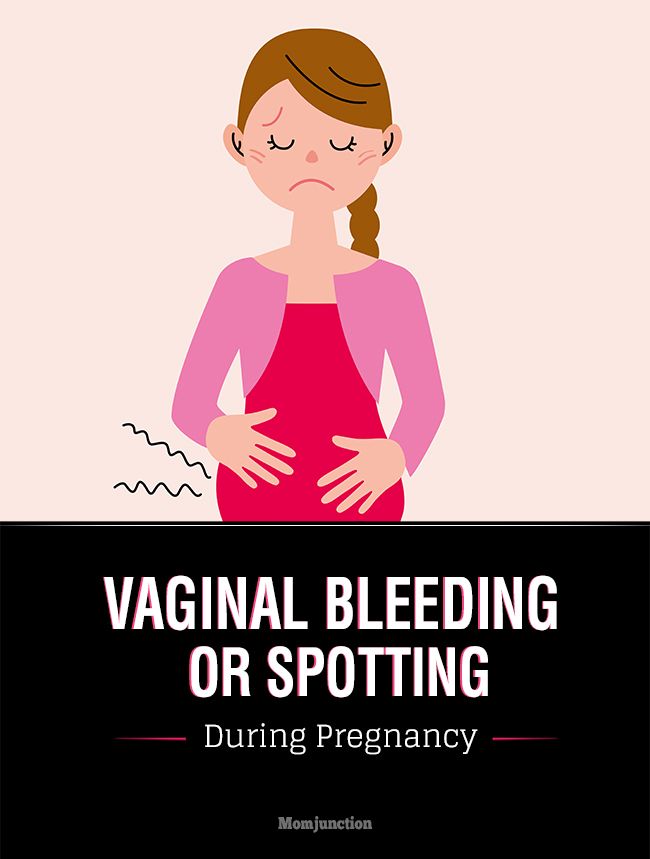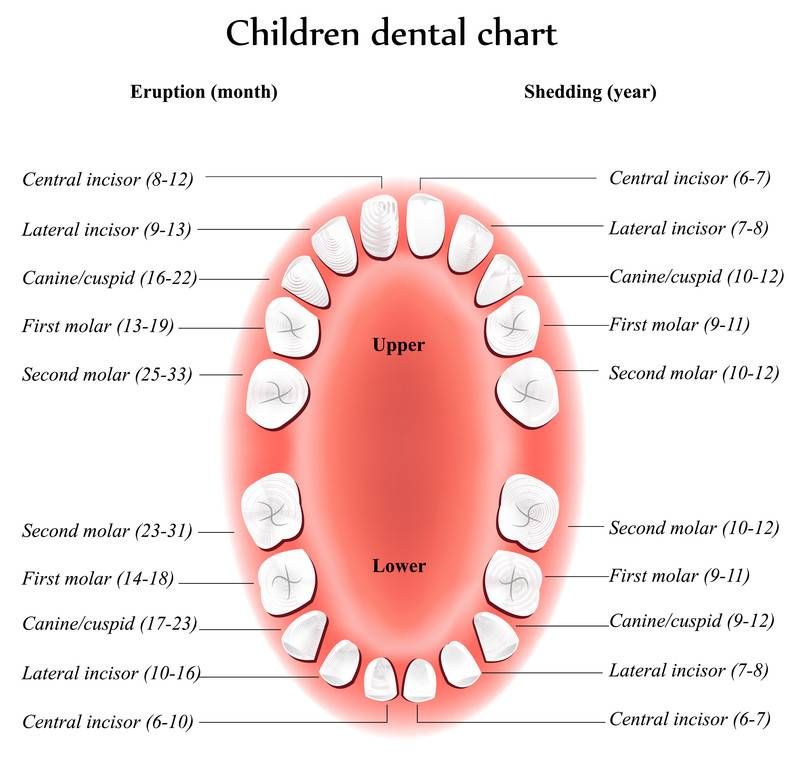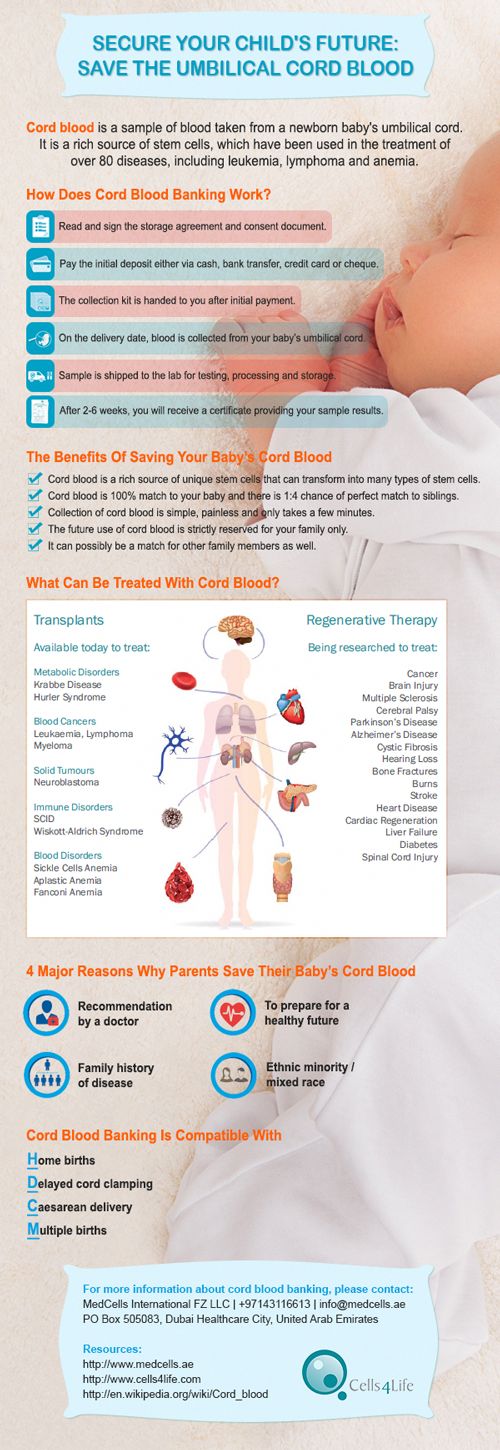Menstruation in pregnancy
Pregnant and Period: Is It Possible?
The short answer is no. Despite all of the claims out there, it isn’t possible to have a period while you’re pregnant.
Rather, you might experience “spotting” during early pregnancy, which is usually light pink or dark brown in color.
As a rule of thumb, if there’s enough bleeding to fill a pad or tampon, then it’s a sign you’re probably not pregnant. If you’ve had a positive pregnancy test and are bleeding heavily, seek medical care.
Your period occurs every month or so in lieu of an egg becoming fertilized. Eggs are released once a month from the ovary. When they aren’t fertilized, the egg travels out of the uterus and sheds through the vagina.
Bleeding during a “normal” period often starts off light, then gets heavier and darker red. It also lightens in color and quantity toward the end of the cycle.
The differences between menstruation and being pregnant are supposed to be clear-cut: Once you’re pregnant, you don’t get periods anymore. But it isn’t always so obvious.
Some people claim they’ve gotten periods while pregnant. Fueling some of the inquiries in the “periods while pregnant” conspiracy are social media, blogs, and even television shows like “I Didn’t Know I Was Pregnant.”
Bleeding is a warning sign, but it doesn’t have to be something bad. Many people go on to have healthy babies after experiencing spotting during their first trimester. If you do bleed during pregnancy, it’s related to something else other than regular menstruation.
After all, periods only happen when you’re not pregnant. Learn about the different types of bleeding during pregnancy and when you need to call your OB-GYN.
Between 15 and 25 percent of people spot during early pregnancy. Some of the causes are:
- implantation bleeding
- changes in the cervix
- infection
- molar pregnancy (abnormal mass fertilizes instead of a fetus)
- ectopic pregnancy (a pregnancy outside of the uterus)
- early signs of a miscarriage
Implantation bleeding
This happens in the earliest stages of pregnancy.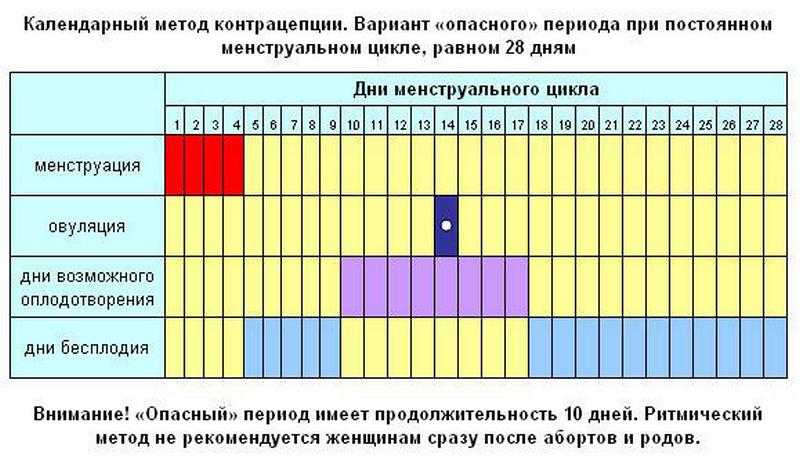 At this point, you likely haven’t gotten a pregnancy test yet. This type of bleeding occurs when the fertilized egg implants into the uterus, usually around the time your period would be expected.
At this point, you likely haven’t gotten a pregnancy test yet. This type of bleeding occurs when the fertilized egg implants into the uterus, usually around the time your period would be expected.
Implantation bleeding is sometimes mistaken as a period, though the bleeding is usually light or just spotting.
Shortly after pregnancy, you might also experience spotting from cervical changes. Unless there’s an infection, this isn’t often cause for concern.
Other causes
Other types of early bleeding that can indicate an emergency medical issue include:
- infections
- ectopic pregnancy
- molar pregnancy
- miscarriage
These can also be accompanied by:
- severe cramps or abdominal pain
- back pain
- faintness or losing consciousness
- fatigue
- shoulder pain
- fever
- vaginal discharge changes
- uncontrollable nausea and vomiting
The bleeding is also much heavier, unlike spotting.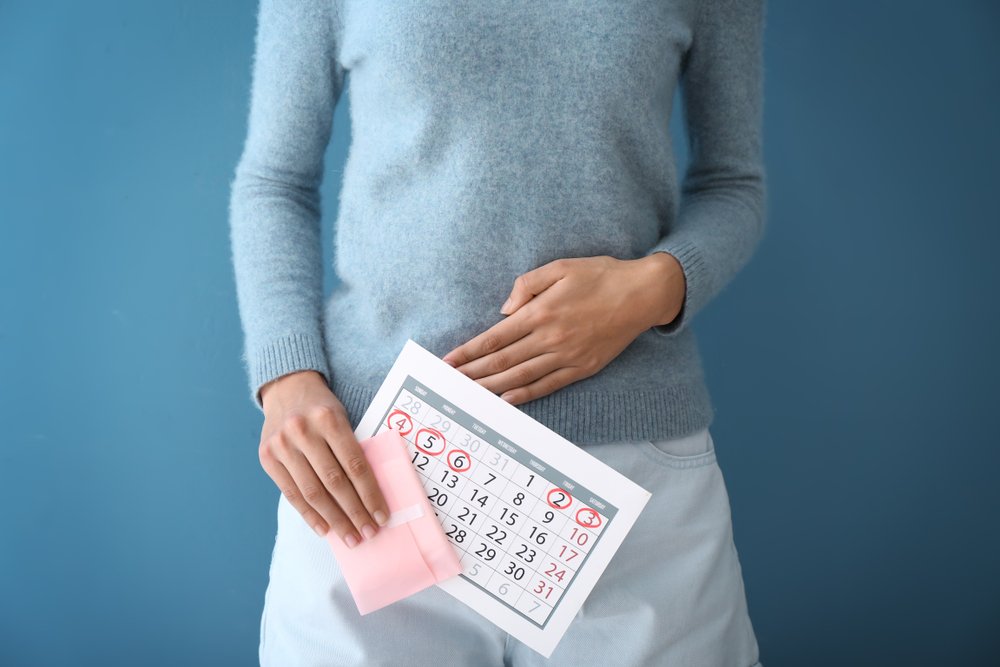 It’s more like a normal period.
It’s more like a normal period.
Bleeding beyond the first trimester often requires medical attention. Regardless of whether bleeding during the second and third trimester is light or heavy, with or without any other symptoms, you need to call your doctor for an emergency visit.
Common causes of bleeding during the rest of pregnancy include:
- term or preterm labor or cervical dilation
- miscarriage
- placenta previa
- placental abruption
- uterine rupture (rare)
- vasa previa (rare)
Preterm labor
This refers to any birth that happens before 37 weeks. Before preterm labor, some people experience symptoms similar to a period as well as a large amount of mucus discharge.
While cramping may also be felt, preterm labor also causes contractions. Symptoms of preterm labor might also include:
- backache
- a sensation of pressure in the vagina
- changes in discharge
Placenta previa
This happens when the placenta is implanted low in the uterus and very close to, or covers, the cervix. The bleeding varies, but there are no other symptoms. Placenta previa can hinder labor and delivery.
The bleeding varies, but there are no other symptoms. Placenta previa can hinder labor and delivery.
Placental abruption
This occurs most commonly during the last few months of pregnancy. The placenta detaches from the uterus, usually causing heavy bleeding and possibly severe stomach pain and cramping. Certain health conditions, such as high blood pressure, can increase the risk of placental abruption.
Uterine rupture
A uterine rupture means that the muscle of the uterus separates or tears. This can cause uncontrolled bleeding. It occurs most commonly in those who have delivered via cesarean delivery in the past. Though rare, this type of tear happens on old scar lines along the uterus.
Many of the conditions that happen in the latter part of pregnancy cause bleeding and other symptoms similar to a period. These aren’t really menstruation, though.
It’s not possible to get your period while pregnant. You may, however, experience similar symptoms of a period during the first trimester.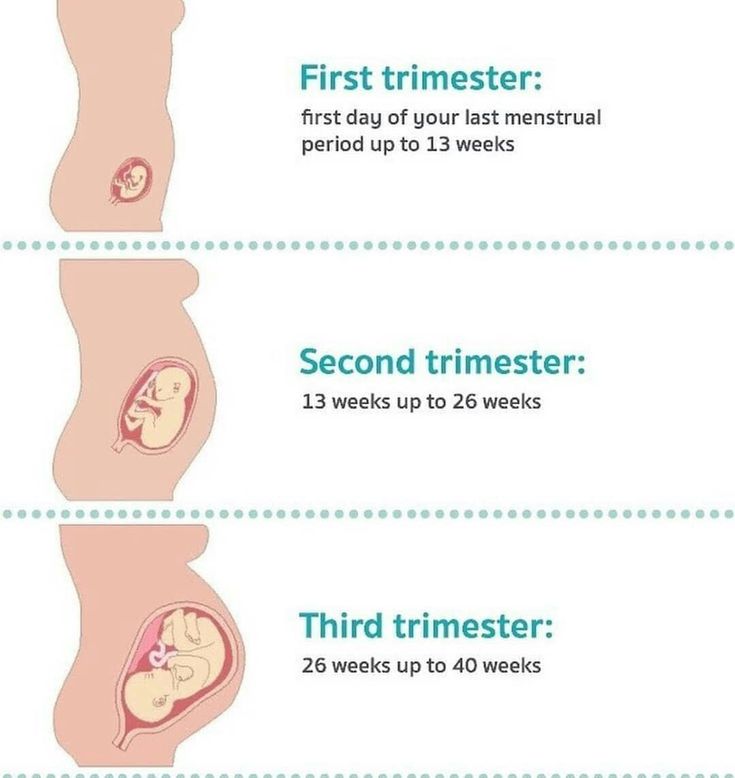 These include:
These include:
- vaginal bleeding (light and short term)
- light cramping
- fatigue
- irritability
- lower back pain
The difference is that these symptoms are related to your body’s natural preparation methods for pregnancy. If any of the above symptoms are severe or don’t go away, you’re in the second or third trimester of pregnancy, or both apply, seek immediate care.
Sometimes it’s difficult to tell whether bleeding is indicative of a medical emergency or not. As a rule of thumb, if you’re bleeding at any stage of pregnancy, call your doctor right away.
Q:
What’s the earliest you can test and get a positive pregnancy result?
Anonymous patient
A:
Home pregnancy tests measure a level of a hormone called human chorionic gonadotropin (hCG) in the urine. Urine usually has less measurable hormones than blood, so urine tests may not be as accurate early in the pregnancy. Several factors can affect the accuracy of the home urine pregnancy test: the type of test or brand, error in interpreting the results, female cycle length, and interference from another diagnosis or treatment are a few examples. The best time to take a home pregnancy test is at the time of a missed menstrual cycle. However, even on the first day after a missed period, more than a third of pregnant women will have a negative home pregnancy test result. Some women report having positive results before the date of their expected menstrual cycle, though this isn’t common.
Several factors can affect the accuracy of the home urine pregnancy test: the type of test or brand, error in interpreting the results, female cycle length, and interference from another diagnosis or treatment are a few examples. The best time to take a home pregnancy test is at the time of a missed menstrual cycle. However, even on the first day after a missed period, more than a third of pregnant women will have a negative home pregnancy test result. Some women report having positive results before the date of their expected menstrual cycle, though this isn’t common.
Kimberly Dishman, MSN, WHNP-BC, RNC-OBAnswers represent the opinions of our medical experts. All content is strictly informational and should not be considered medical advice.
Period during pregnancy: Is it possible?
During a period, the uterus sheds the lining that has built up in case of pregnancy. While a woman can experience uterine bleeding during pregnancy, it will not be due to a period.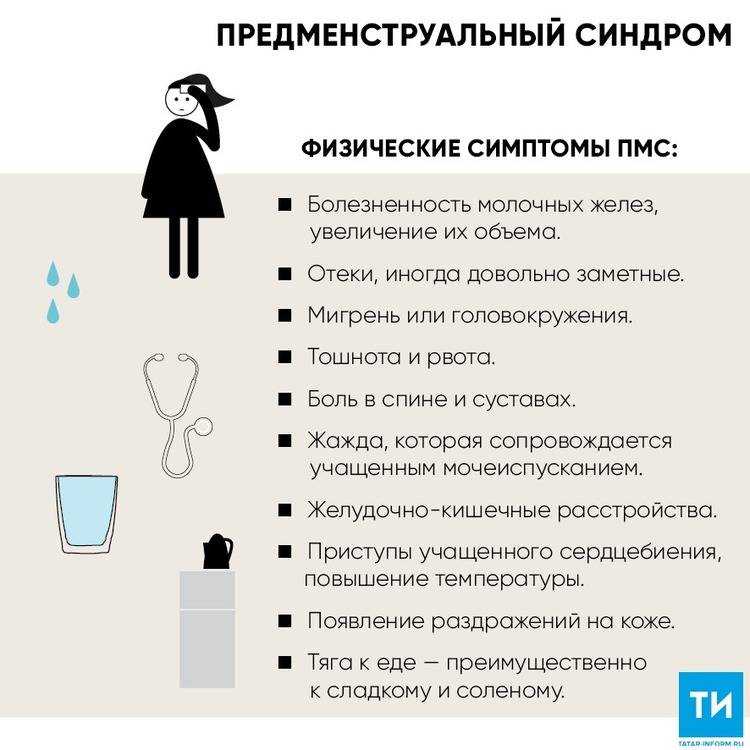
In this article, we take an in-depth look at menstruation and pregnancy and discuss other potential causes of bleeding during pregnancy.
A period will not be the cause of any bleeding during pregnancy.
When a woman is pregnant, she does not continue to ovulate and will not have a period. Menstruation only occurs when a person is not pregnant.
Although it is possible for women to experience some bleeding during pregnancy, this will not be due to their menstrual cycle.
Some women also do not have any periods while breast-feeding. However, they may still begin to ovulate again soon after giving birth. Therefore, doctors may recommend some form of birth control while a woman is breast-feeding if she does not wish to get pregnant.
The menstrual cycle occurs to facilitate pregnancy. The cycle begins on the first day of a person’s period and ends on the first day of the following period.
Ovulation, when the ovary releases an egg, occurs midway through the cycle.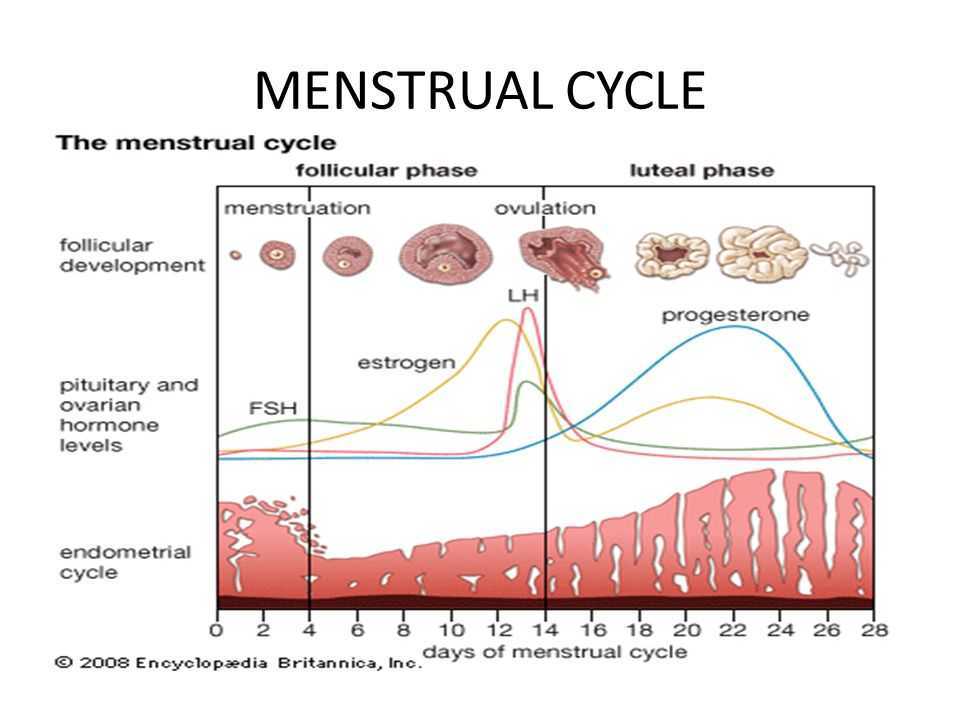
An egg is only viable for about 12–24 hours after a woman ovulates. If sperm cells are present and able to fertilize the egg, the egg will implant itself in the uterus, resulting in pregnancy.
If there is no fertilization, menstruation will occur, and the body will shed the uterine lining so that it can begin making a new one for the next cycle.
Although a woman will not have a period when she is pregnant, she may still experience some bleeding.
While bleeding is not necessarily a sign of an underlying problem, it is essential to understand the potential causes and know when to speak to a doctor.
First trimester
Bleeding tends to be more common during the first trimester. Some mild spotting can occur as the placenta implants in the uterus.
A woman can also experience changes in the cervical cells during pregnancy, which may cause some light bleeding, especially after having sex.
Other causes of bleeding in the first trimester include:
- ectopic pregnancy, which is a medical emergency
- an infection
- miscarriage, or pregnancy loss
- subchorionic hemorrhage, also called subchorionic hematoma, when bleeding occurs between the uterine wall and the placenta
- gestational trophoblastic disease (GTD), a very rare condition that can simulate pregnancy by causing a tumor that may contain abnormal fetal tissue
After 20 weeks
Causes of bleeding later in pregnancy may include:
- Cervical examination: A doctor may inspect the cervix to check for any abnormalities.
 This procedure can result in some minor bleeding.
This procedure can result in some minor bleeding. - Placenta previa: This is a condition that occurs when a woman’s placenta implants close to or on the cervical opening.
- Preterm labor or labor: During labor, the cervix will dilate, and the uterus will contract to help move the fetus down. This can result in some bleeding.
- Sexual intercourse: While most women can continue to have sex while pregnant, unless a doctor advises otherwise, they may experience some spotting and bleeding due to increased sensitivity of the vaginal and cervical tissues.
- Uterine rupture: This is when the uterus tears during labor, which is a medical emergency. This condition is rare but is more likely to occur if a woman has previously had a cesarean delivery or surgery on the uterus.
- Placental abruption: This is a condition in which the placenta begins to separate from the uterus before the baby is born.
 It is also a medical emergency.
It is also a medical emergency.
If a woman does experience bleeding at any stage of pregnancy and is concerned, she should note the color, amount, and consistency of the bleeding and speak to a doctor.
Women should seek emergency medical attention for bleeding during pregnancy if they have additional symptoms that include:
- pain and cramping
- dizziness or fainting
- heavy bleeding or passing clots
- severe pain in the stomach and pelvis
A woman should also see a doctor about bleeding that is bright red and soaks a pad.
Vaginal bleeding and pelvic pain early in pregnancy may be a sign of ectopic pregnancy, especially if these symptoms occur before an initial ultrasound. Any woman who suspects an ectopic pregnancy should see a doctor as soon as possible.
If a woman is bleeding and has symptoms of preterm labor, which is labor before 37 weeks of gestation, she should seek medical attention. These symptoms may include a constant ache in the lower back, abdominal cramping, and regular contractions.
Bleeding during pregnancy does not indicate that a woman is having her period.
Sometimes the bleeding can be the result of regular changes in the body during pregnancy.
Heavy bleeding may indicate a health issue that requires treatment. If a woman experiences bleeding during pregnancy, she should speak to a healthcare professional for guidance.
Read the article in Spanish.
SM-Clinic gynecologist told whether menstruation can occur during pregnancy
Is the appearance of bloody discharge in a future mother a reason to see a doctor or is it normal for early pregnancy? We understand.
Tatyana Vladimirovna Grigoryeva, an obstetrician-gynecologist at SM-Clinic, told the readers of Letidor about what the menstrual cycle is, as well as about menstruation during pregnancy.
Tatyana Vladimirovna Grigorieva, obstetrician-gynecologist "SM-Clinic"
Can menstruation guarantee that pregnancy has not occurred
First, let's remember what the menstrual cycle is. This is the alternation of the menstruation itself (lasts 3-7 days), the follicular phase, ovulation and the luteal phase. During menstruation, the mucous membranes of the uterus are shed. The process is accompanied by bleeding (this happens at the end of the ovulatory cycle). If there was no ovulation, then the bleeding is called menstrual-like.
This is the alternation of the menstruation itself (lasts 3-7 days), the follicular phase, ovulation and the luteal phase. During menstruation, the mucous membranes of the uterus are shed. The process is accompanied by bleeding (this happens at the end of the ovulatory cycle). If there was no ovulation, then the bleeding is called menstrual-like.
It is extremely rare for two eggs to mature in one cycle (but this happens!): one is fertilized, and the second is rejected by the body and causes the onset of menstruation.
Menstruation during pregnancy cannot be normal.
However, do we always understand the nature of bleeding from the vagina without medical diagnosis? If during the alleged menstruation a woman noticed spotting, but their nature is different from the usual menstruation (the discharge is scarce, ends quickly, has a brown or bright scarlet color) and you remember that unprotected intercourse took place - this is a reason to do pregnancy test and see a doctor.
What can menstruation mean during pregnancy
After fertilization of the egg and the onset of pregnancy, menstruation does not occur throughout the entire process of bearing the fetus.
It should be remembered that the appearance of any bloody discharge from the vagina during a confirmed pregnancy (positive urinary pregnancy test, ultrasound data, hCG values) indicates possible pathologies. For example, when there is a threat of miscarriage and termination of pregnancy (started spontaneous abortion), placenta previa (low, marginal, complete).
Scanty spotting during the first days of pregnancy may be nothing more than implantation bleeding. Implantation of a fertilized egg (blastocyst) into the endometrium occurs 7-10 days after conception, that is, in fact, approximately on the days when menstruation should come in case of late ovulation.
The introduction of the blastocyst is accompanied by the destruction of the capillaries, and, consequently, there is a release of blood in a small amount.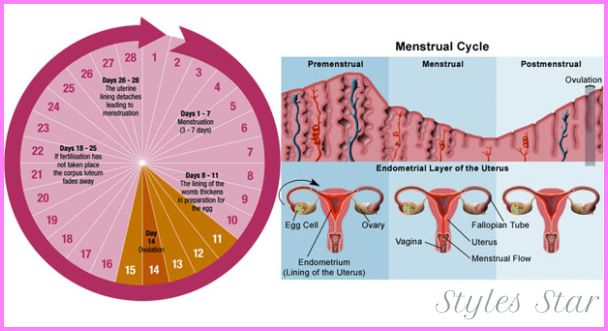 But, unlike true menstrual bleeding, implantation does not last long: in most cases, a day, or even less.
But, unlike true menstrual bleeding, implantation does not last long: in most cases, a day, or even less.
What effect does progesterone have on the mucous membranes of the uterus
Progesterone is the most important hormone throughout pregnancy. It is involved in the preparation of the endometrium for the implantation of a fertilized egg, the development of the fetus, and prevents premature birth. The reason for the occurrence of bloody discharge from the vagina, including on the days on which the woman previously had menstruation, may be a lack of this hormone.
Left unattended, hormonal bleeding can lead to spontaneous abortion.
However, in most cases, with timely treatment, it is possible to remove the deficient condition and minimize the risks.
Can spotting indicate an ectopic pregnancy
An ectopic pregnancy is when a fertilized egg deviates from its intended path and attaches in the wrong place - outside the uterine cavity. The appearance of bloody discharge from the genital tract is not uncommon in ectopic pregnancy.
The appearance of bloody discharge from the genital tract is not uncommon in ectopic pregnancy.
In contrast to menstrual bleeding, they are thicker and darker in color.
It should be remembered that in the early stages, the signs of an ectopic (ectopic) pregnancy are very similar to the signs of a normal pregnancy (delayed menstruation, swelling of the mammary glands, positive urine pregnancy test).
Any suspected ectopic pregnancy is an indication for emergency hospitalization, as this is a life-threatening condition.
When do menstrual flow occur and what does it mean
In most other cases, bleeding during early pregnancy (in the first trimester) is an alarming symptom.
For example, it may indicate that the placenta is located in the lower part of the uterus and covers its internal os (this can be interpreted as a threat of abortion).
In the second and third trimester, bleeding may indicate uterine rupture (eg, may occur if there is a scar on the uterus from a previous birth), premature detachment of a normally located placenta, and other problems.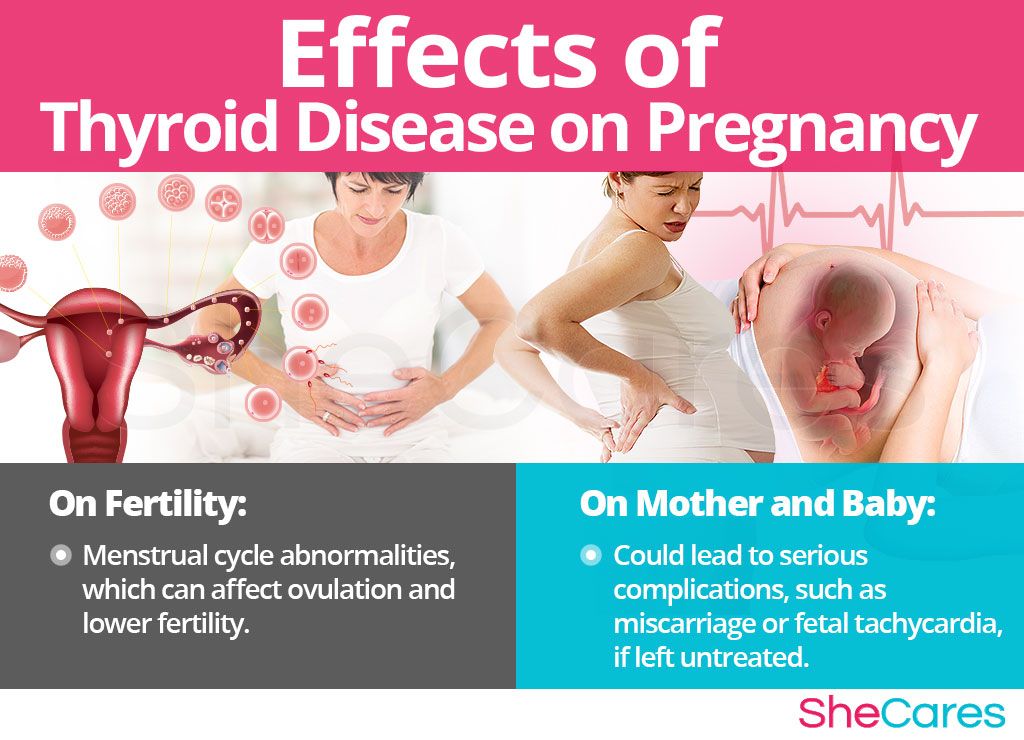
Bleeding during pregnancy is a sure sign for the expectant mother that she needs to see a doctor immediately.
It is important to remember that periods during pregnancy are not normal. For any bleeding in this case, the help of a specialist is needed.
How often do periods occur during pregnancy
15-20% of pregnancies end in spontaneous abortion in the early stages. However, it is important to understand that although bloody discharge from the vagina against the background of a live intrauterine pregnancy is designated by doctors as a “threat of miscarriage”, but in a large number of cases, despite a formidable diagnosis, such a pregnancy is safely carried out.
If abortion does occur, in most cases (overwhelming) it is a genetic abnormality of the fetus that is incompatible with life. Other reasons include infectious diseases in the early stages, hormonal disruptions, physical overload, and so on.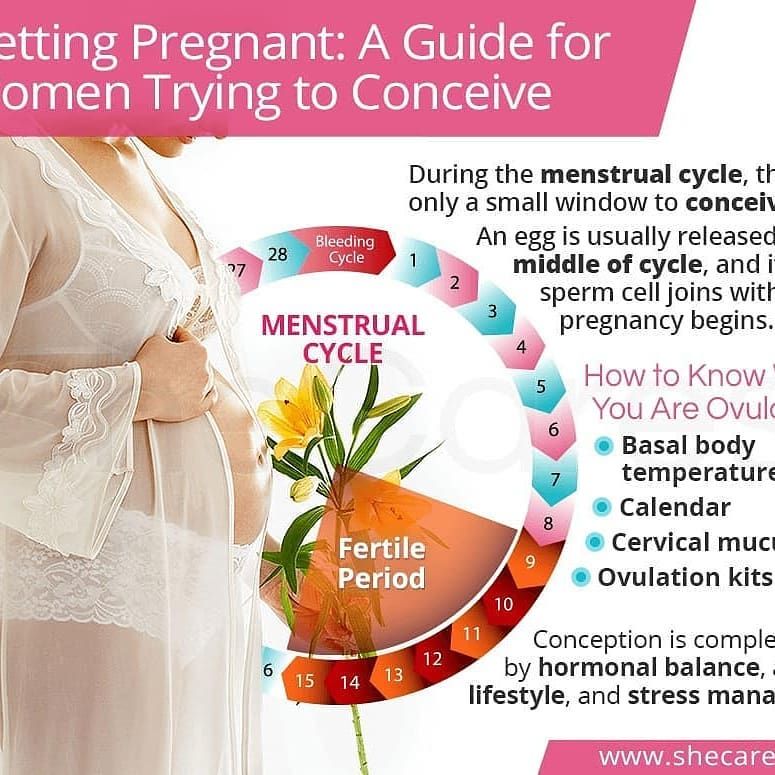
Should I see a doctor if bleeding occurs during pregnancy only after intercourse
The appearance of bloody discharge from the genital tract after intercourse may indicate erosion of the cervix, the presence of polyps of the cervical canal. Allocations in this case are usually meager and pass quickly.
However, only a doctor can find out if this is true or if there is a risk of miscarriage.
Couples are advised to have sexual rest until the diagnosis is made.
The fact is that during intimate caresses in the body of a woman, oxytocin is released - a hormone that stimulates uterine contractions.
Published on letidor.ru
Pregnancy and menstruation | Kotex®
The question “Am I pregnant?” probably occurred at least once to the vast majority of heterosexual women who are sexually active.
Although the absence of periods is the most noticeable early symptom of pregnancy, many women have many questions when it comes to whether menstruation is possible during pregnancy.
Is it possible to have periods during pregnancy?
No, they can't. If you have your period, it means you are not pregnant.
Menstruation occurs only if the monthly egg that comes out of the ovaries has not been fertilized.
If the egg is not fertilized, it leaves the uterus and is excreted along with the menstrual blood through the vagina.
The difference from pregnancy seems obvious at first glance, because during pregnancy there are no periods, and if you are not pregnant and in reproductive age, then you have periods.
But some women have doubts about this, which are related to the fact that about 20-30% of pregnant women have irregular spotting, which in essence is not menstruation and differs from it: most often they have light pink or brown shade and not so abundant. Sometimes women confuse them with menstruation if they occur around the same time that menstruation is expected.
-
normal menstrual bleeding is light at first and then increases, and the blood becomes more intense red
-
normal menstrual bleeding becomes less intense towards the end of menstruation, the color also becomes less intense
What can cause bleeding during early pregnancy?
Bloody discharge during pregnancy can be associated with many factors, each of which is a reason to urgently visit a doctor to rule out pathology.
Main causes of bleeding in the first trimester of pregnancy:
-
bleeding after attachment of the egg to the wall of the uterus
-
signs of threatened miscarriage
-
infections
-
ectopic pregnancy
Many women who experience this light bleeding go on to have normal pregnancies and give birth to healthy babies, but in about a third the bleeding becomes more intense over time and eventually miscarries.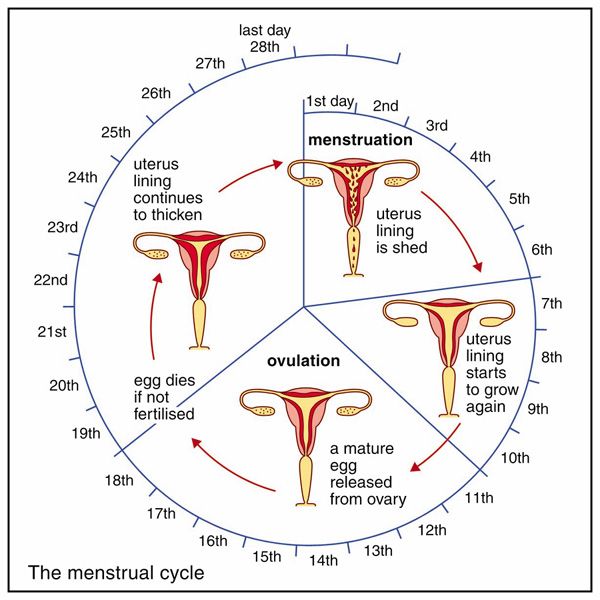
Unfortunately, there is no way to determine at home what caused such bleeding, so whenever such light bleeding occurs during pregnancy, you should consult your gynecologist for advice to rule out the possibility of pathology.
Important: If you are pregnant and have bleeding that becomes more intense and does not stop, accompanied by pain in the abdomen and lower back, you should immediately consult a doctor.
When do periods start after pregnancy?
Both after caesarean section and after vaginal delivery, women experience vaginal bleeding.
In the first weeks after childbirth, the blood may clot and be more intense than normal periods, but then they become brown, light red and finally whitish.
This discharge is called lochia and usually lasts no more than 45 days after vaginal delivery and up to 60 days in women after caesarean section. Lochia begins immediately after childbirth, and menstruation occurs only when the level of the hormone prolactin in the woman's body drops, which causes the appearance of breast milk.
If you are not breastfeeding, your periods usually return 6-8 weeks after delivery.
If you are breastfeeding, you may not have your period for as long as you are breastfeeding your baby.
During lochia, it is recommended to use pads rather than tampons.
Abortion and menses
Many questions about menstruation also arise in women who have experienced an unplanned pregnancy and have decided to have an abortion.
How this procedure will affect the body depends on many factors, primarily on whether the abortion was medical or surgical. Bleeding after an abortion is normal, but in the truest sense of the word, menstruation is not.
Medical abortion
During a medical abortion, the doctor gives you two pills.
Usually, the first tablet is taken under the supervision of a doctor, in the clinic. After taking this pill, the endometrium of the uterus, to which the fertilized egg is attached, ceases to thicken, and pregnancy can no longer develop. Some women begin to bleed at this point.
Some women begin to bleed at this point.
The woman then leaves the clinic and takes the second pill at home. After taking it, the endometrium begins to separate from the walls of the uterus and exit through the vagina. Such bleeding usually begins 0.5-4 hours after taking the pill. Usually, at 4-5 hours of bleeding, it becomes more intense, then its intensity decreases, and it becomes similar to normal menstruation.
Surgical abortion
In the case of a surgical abortion, bleeding may begin immediately after the procedure, but in some women it begins after 3-5 days. Usually such bleeding is weaker than normal menstruation. Bleeding may stop or last until the next menstruation.
How long does bleeding last after an abortion?
Bleeding after any type of abortion often lasts 1-2 weeks. Most often, after this period, it becomes quite insignificant, and in some women it completely disappears until the next menstruation.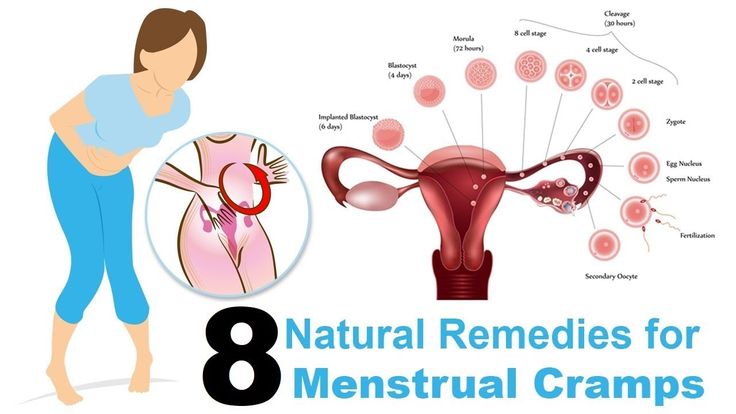
What should be the bleeding after an abortion?
Bleeding after an abortion is similar to normal menstruation, but the blood itself is often brown rather than red. After a medical abortion, it is usually more intense than after a surgical one.
You may notice blood clots and most of the time this is not a cause for concern, but if they continue to stand out against the background of heavy bleeding and continue for more than two hours, then your doctor should be contacted.
Many doctors do not recommend the use of tampons for at least two weeks after an abortion, during this period it is better to use hygienic gaskets.
First period after abortion
Abortion restarts the menstrual cycle.
Periods after it usually return to normal within 1-1.5 months after the procedure. The timing depends, among other things, on how long the pregnancy was terminated—as a rule, the longer the term, the more time it may take for the body to restore the usual level of hormones.


